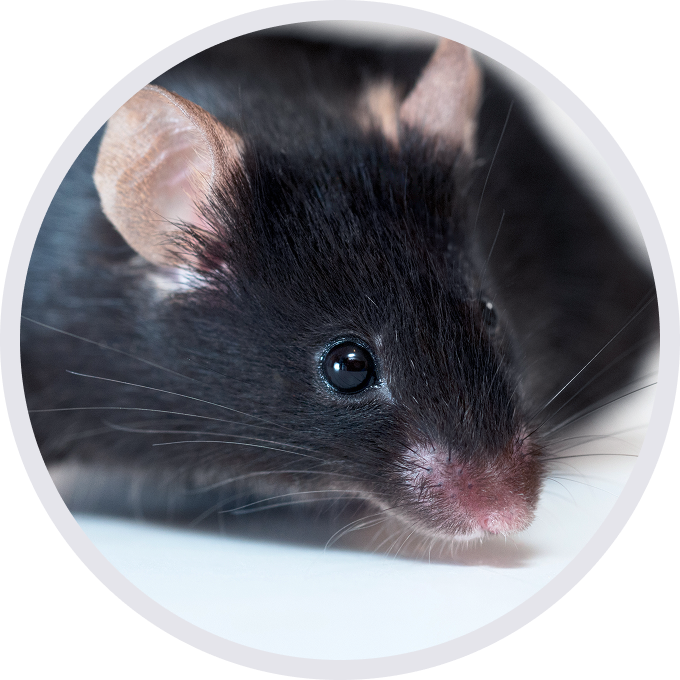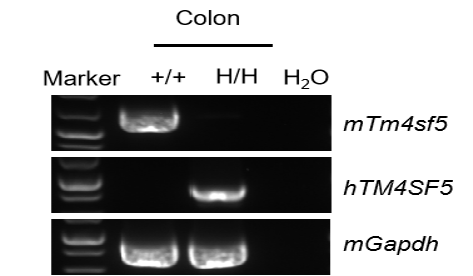Description
- TM4SF5 belongs to the transmembrane 4 superfamily (tetraspanin family), characterized by four hydrophobic domains. It mediate signal transduction events involved in regulating cell development, activation, growth, and motility. TM4SF5 is highly expressed in multiple cancers, including liver cancer, colon cancer, pancreatic cancer, and esophageal cancer. TM4SF5 interacts with integrins α2, α5, β1, and EGFR, mediating cell migration, tumorigenesis, and drug resistance.
- Targeting strategy: The exons 1-5 of mouse Tm4sf5 gene that encode signal peptide, extracellular domain, transmembrane domain, cytoplasmic region and 3’UTR are replaced by human counterparts in B-hTM4SF5 mice. The promoter and 5’UTR region of the mouse gene are also retained. The chimeric TM4SF5 expression is driven by endogenous mouse Tm4sf5 promoter, while mouse Tm4sf5 gene transcription and translation will be disrupted.
- Application: This humanized mouse model is utilized for evaluating the efficacy and toxicity of monoclonal antibody or ADC drugs against solid tumors such as colon cancer and liver cancer.
Targeting strategy
Gene targeting strategy for B-hTM4SF5 mice. The exons 1-5 of mouse Tm4sf5 gene that encode signal peptide, extracellular domain, transmembrane domain, cytoplasmic region and 3’UTR are replaced by human counterparts in B-hTM4SF5 mice. The promoter and 5’UTR region of the mouse gene are also retained. The chimeric TM4SF5 expression is driven by endogenous mouse Tm4sf5 promoter, while mouse Tm4sf5 gene transcription and translation will be disrupted.
mRNA expression analysis
Strain specific analysis of TM4SF5 mRNA expression in wild-type C57BL/6N mice and B-hTM4SF5 mice by RT-PCR. Colon RNA were isolated from wild-type C57BL/6N mice (+/+) and homozygous B-hTM4SF5 mice (H/H), then cDNA libraries were synthesized by reverse transcription, followed by PCR with mouse or human TM4SF5 primers. Mouse Tm4sf5 mRNA was only detectable in wild-type mice. Human TM4SF5 mRNA was exclusively detectable in homozygous B-hTM4SF5 mice but not in wild-type mice.
* When publishing results obtained using this animal model, please acknowledge the source as follows: The animal model [B-hTM4SF5 mice] (Cat# 111288) was purchased from Biocytogen.

